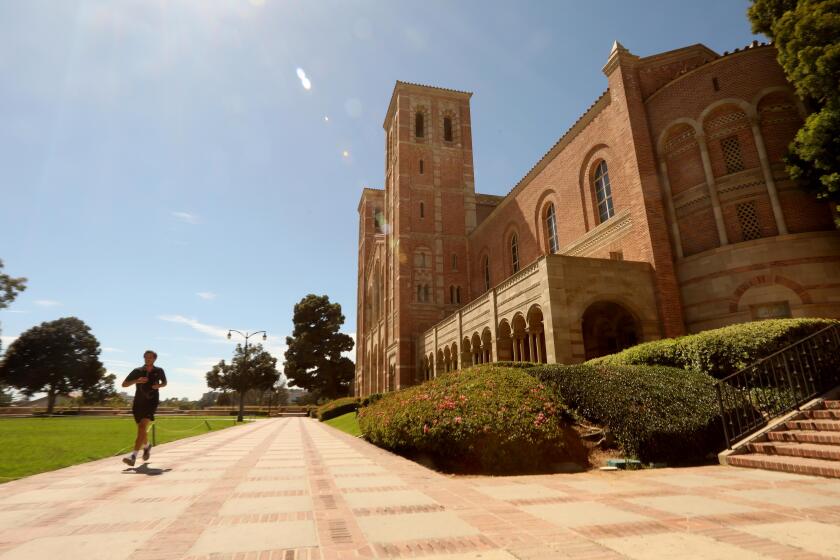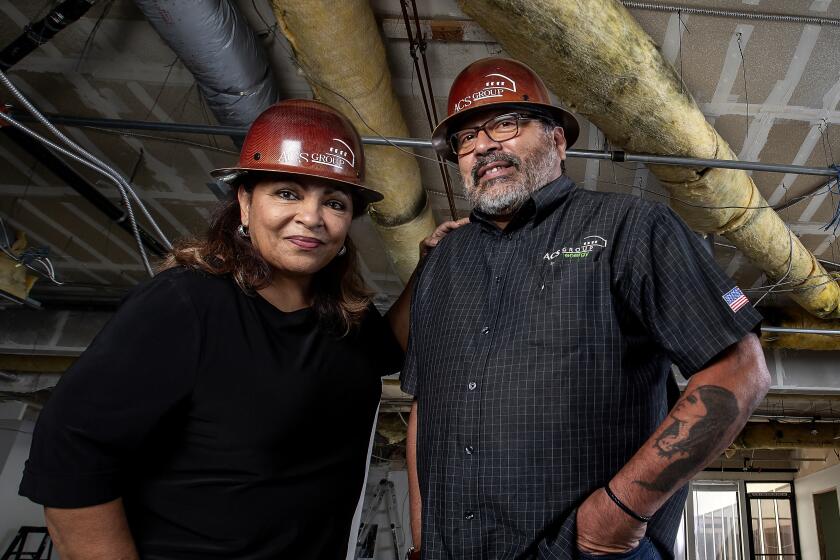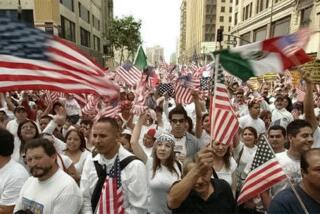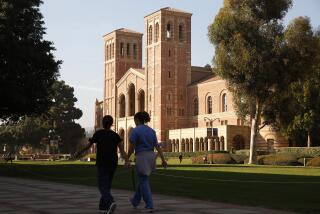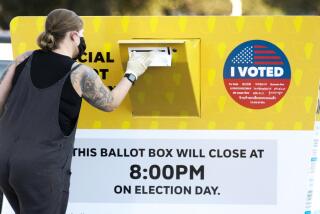Failure to bridge divides of age, race doomed affirmative action proposition
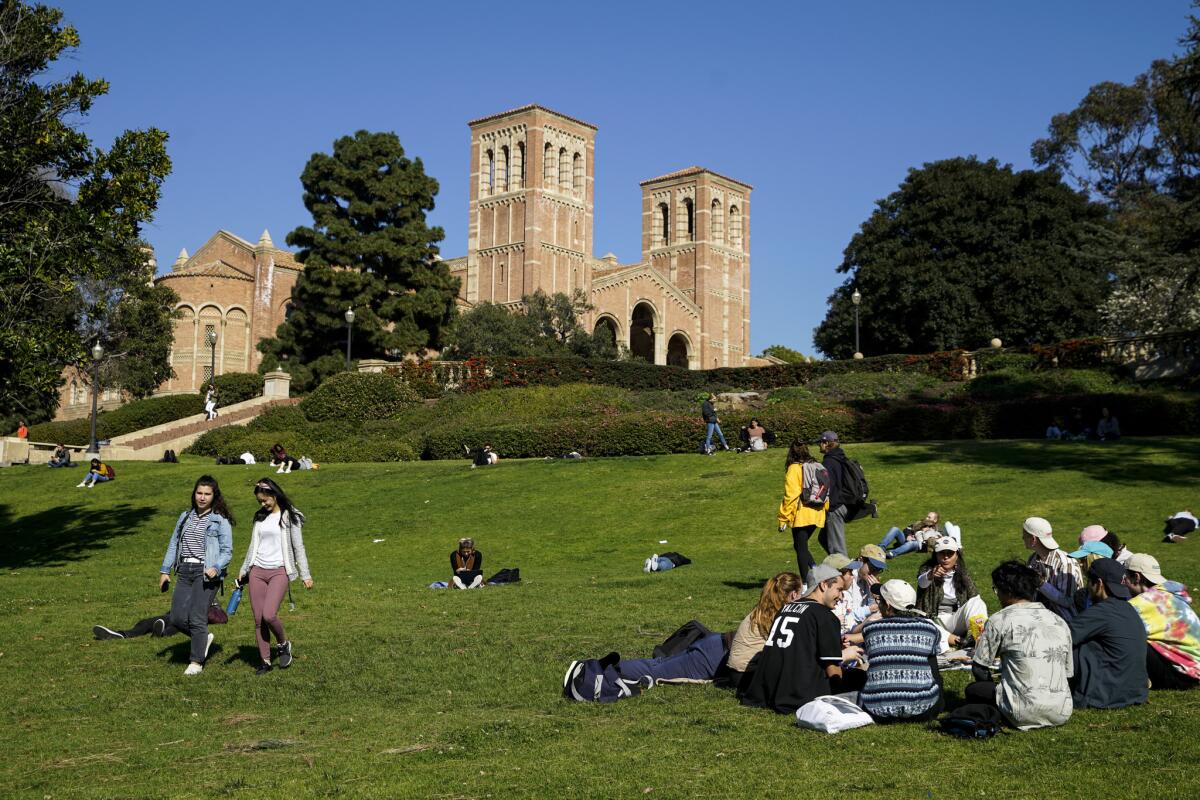
Widespread skepticism in Latino and Asian communities and tepid support among younger Black residents combined with opposition from most whites to doom the effort this year to revive affirmative action in California, according to a new postelection survey.
The failure of Proposition 16, which voters rejected by 57% to 43%, marked a significant defeat for the state’s Democratic political leadership and many activist groups, which backed the Legislature’s move to put the proposal on this year’s ballot.
The findings of the survey provide the clearest evidence so far of the disconnect between those political leaders and many of their ostensible followers on an issue that has been a touchstone in the state’s political debates for years.
The survey, conducted by a coalition of community organizations, shows widespread support across racial and ethnic lines for diversity in education, public employment and contracting. At the same time, it showed broad skepticism about allowing government officials to use race, ethnicity or gender in making decisions.
On two other topics, the survey showed how attitudes toward the COVID-19 pandemic have grown more politically divided as the state heads into a period of renewed restrictions designed to limit the spread of the disease.
And it indicated that awareness and concern about racial and ethnic discrimination in the state has receded since reaching a high point this summer.
Under Proposition 16, public universities would have been allowed to consider race, sex, color, ethnicity or national origin to address diversity.
Asked how often they personally felt discriminated against because of their race or ethnicity, about one-third of Latino respondents said they experienced discrimination “frequently” or “sometimes.” That’s down from nearly half when the poll asked the same question in July.
The finding “reaffirms that these issues are difficult and complicated, and people just don’t have the bandwidth” to focus constantly on discrimination, especially when the impact of COVID dominates so many peoples’ lives, said Helen Torres, executive director of Hispanas Organized for Political Equality (HOPE), one of the sponsors of the survey.
“It’s hard to sustain for the long term,” she said.
The share of Asian and Pacific Islander respondents who reported feeling discriminated against showed a similar decline since July. The share of Black respondents who reported feeling discriminated against did not significantly decline.
The California Community Poll, conducted online Nov. 4-15, was designed to provide a more detailed view of the state’s racial and ethnic diversity than is typically possible. It surveyed 1,300 adult California citizens, with over-samples of Black, Latino and Asian Pacific Islander respondents in order to ensure enough in each group to allow analysis by age, gender and other characteristics.
The margin of error is estimated at 2.7 percentage points for the full sample. The poll is sponsored by three community organizations — the Center for Asian Americans United for Self Empowerment (CAUSE), the Los Angeles Urban League and HOPE.
California banned most government affirmative action programs nearly a quarter century ago, in 1996, when voters approved Proposition 209. Since then, overturning the ban has been a major goal for many Democratic lawmakers and state officials, especially at the University of California, where deans and chancellors have repeatedly said that their inability to take race into account in admissions has kept the number of Latino and Black students well below their share of high school graduates who meet UC eligibility standards.
But as the poll showed, many Californians have more mixed feelings on the subject than their elected officials do.
Billions of dollars are at stake as California voters decide whether to overturn a ban on affirmative action for government contracting.
The results show “a limit on California’s liberalism” that “requires some examination of the progressive base,” said Drew Lieberman, senior vice president of Strategies 360, the polling firm that conducted the survey.
Two-thirds of the California adults surveyed said they believe “diverse representation based on race, gender, ethnicity and national origin” is important, with about 4 in 10 calling it “very important.”
That’s true across major ethnic and racial groups and among both voters and nonvoters, the survey found. About 6 in 10 white respondents said they considered diversity important, along with about 7 in 10 who identify as Latino or Asian or Pacific Islanders. Among Black respondents, the share rose to more than 8 in 10.
But that didn’t translate into support for affirmative action. Among Latino respondents, for example, only 30% said Proposition 16 was a good idea, compared with 41% who called it a bad idea and 29% who said they were unsure. The division was similar among Asian and Pacific Islander respondents, with 35% calling the proposition a good idea, 46% saying it was a bad idea and 20% unsure.
White respondents were slightly more opposed, with 32% calling the measure a good idea, 53% a bad idea and 15% unsure.
Only among Black respondents did the proposition get majority support, with 56% calling it a good idea, 19% a bad idea and 25% unsure.
The views of voters and nonvoters were very similar, suggesting that higher turnout would probably not have changed the results.
Roughly a third of those polled could be characterized as solid supporters of affirmative action — people who said that diversity is important and the ballot measure was a good idea. On the other side, just over 1 in 5 say diversity is not important to them and that the ballot measure was a bad idea.
Another 1 in 5 say diversity is important but that the proposal was a bad idea. The members of that swing group are more likely than others to describe themselves as moderates and to be suburbanites.
Since the election, some supporters of the ballot measure have speculated that voters may have been confused about its potential impact. The survey does not support that. After asking people their opinion, the survey gave a more extensive description of the ballot measure and retested people’s feelings on it. The additional information did not significantly change people’s views.
In each of the state’s major racial and ethnic groups, the survey found significant divisions.
Immigrants, for example, were more likely to reject affirmative action than were people born in the U.S. That contributed to a significant generation gap among Asian Pacific Islander respondents, with those older than 50 — an immigrant-heavy group — opposed to affirmative action by roughly 3 to 1, while those younger than 50 were narrowly favorable. The poll found a smaller generational divide among Latino respondents.
“Many immigrants came to this country for equal opportunities” and are suspicious about preferences for specific groups, said Charlie Woo, the board chairman of CAUSE.
The survey also found Chinese American respondents more strongly opposed than other Asian Pacific Islander groups, with people who identified as Chinese describing the ballot measure as a bad idea by roughly a 2-to-1 margin. Opponents of the ballot measure argued that Asian American students would lose spots in the state’s premier universities if affirmative action were restored, an argument that was widely heard by Chinese Americans.
The poll results clearly showed “the impact of the concerns around public education,” said Nancy Yap, CAUSE’s executive director.
Among white respondents, people younger than 50 were almost evenly divided on affirmative action, while those 50 and older were heavily opposed.
Among Black respondents, the opposite was true: Older people overwhelmingly supported affirmative action; younger ones were more closely divided.
For the older generation, the impact of affirmative action “is clear,” said Michael Lawson, president of the Los Angeles Urban League. “The younger generation, who didn’t live through the elimination of affirmative action, they didn’t understand” the implications.
“If we’re going to eliminate Proposition 209,” he added, “it’s going to have to be a longer tale” than is possible in a ballot campaign.
On several topics, including affirmative action, the survey found wide gaps along partisan and ideological lines. That was particularly true on questions related to the coronavirus.
Overall, the survey showed a “widening partisan gap” in the state on responding to the virus, said Ben Winston of Strategies 360. The attitudes of liberal Californians and Democrats have largely remained the same since earlier this year, but conservatives and Republicans have shifted significantly toward opposing restrictions on commerce, supporting a full opening of schools and downplaying the impact of the disease.
In July, for example, about one-third of Republicans in the survey said they were not worried about themselves or someone in their family coming down with COVID-19. Today, that share has risen to 55%.
“Even as the death toll is mounting,” Winston said, there is “a stark and growing divide between the parties.”
More to Read
Get the L.A. Times Politics newsletter
Deeply reported insights into legislation, politics and policy from Sacramento, Washington and beyond. In your inbox three times per week.
You may occasionally receive promotional content from the Los Angeles Times.
